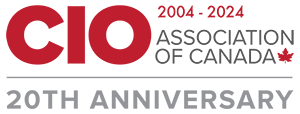How to make the shift to future-ready talent
The future of work is impossible to predict. However, we can get ready for it by investing in people and technology to evolve our operations.
The pandemic has made it necessary for many organizations to shift continually between in-person and virtual workplaces. As a result, organizations are turning to automation and artificial intelligence (AI) to help adapt to this new reality. These changes in the workplace means that future workers will experience new career paths that we have not yet imagined.
To prepare for these changes, the University of Waterloo has launched the Future Ready Talent Framework (FRTF). It outlines groupings of competencies that companies will need and ideas for how to hire employees that are ready for the future of work.
Here are four competency groups, or sets of skills and knowledge, that can be beneficial to think about as you hire and train your workforce:
- Expand and transfer expertise
Those who can expand their knowledge and skills, including discipline and context-specific skills, will develop and integrate knowledge and ideas into their work. The ability to synthesize data in meaningful ways through information and data literacy helps them to form meaningful conclusions.
A team of Waterloo students, expanded their expertise in artificial intelligence and launched House.ai, a company that uses machine learning models to process data for predictive analytics to help prevent sepsis.
Stay competitive with the technological agility that emerging talent can bring to your organization. Students can work to create and implement new systems. For example, Math students from Waterloo used their technological agility to develop a baseline to help people make better decisions about health-related topics like COVID.
- Develop self
The ability to self-manage with a positive attitude and incorporate feedback into one’s work helps employees and organizations cope with the pressure of the future workplace. Those who seek feedback on their performance and have an accurate sense of what they contribute to the organization through self-assessment can adapt to shifting landscapes.
Lifelong learning will help employees to explore how their personal values and interests align with occupational needs and gives them the ability to transfer skills between disciplines.
Employers can encourage employees to practice self-assessment by acknowledging their skills, abilities, and limits while providing feedback about ways to improve.
In a world of artificial intelligence, remote work and digital contexts, communication is taking on a whole new meaning. Individuals and organizations must have an in-depth understanding of their audiences and strong communicators know how to communicate effectively across multiple platforms.
Recognizing intercultural effectiveness is essential across all roles and industries. Employees in a global workplace must celebrate diversity and adjust their cultural assumptions.
By encouraging teams to work effectively with diverse groups of stakeholders, they can encourage and reinforce collaboration.
- Design and deliver solutions
In today’s fluctuating world taking measured risks and demonstrating an innovative mindset is key. Individuals that have critical thinking skills can implement steps to complete projects and manage their time to fulfill their responsibilities and deadlines. Individuals and organizations will need to understand the “big picture” to make sustainable, evidence-based recommendations.
As we make the shift towards future-ready talent, it’s important to identify, recruit and retain the right candidates. The Future Ready Talent Framework can help prepare you for an ever-changing world. Get started today by developing your co-op or intern program to get tech talent into your company’s pipeline.
About the Author:
 Tammy Kim-Newman is a business developer and tech talent specialist at the University of Waterloo, Canada’s #1 university for Computer Science, Mathematics and Engineering (Maclean’s 2021 University Rankings). She has 10+ years supporting industry partners with their early talent strategies and advocates for work-integrated learning. If you have questions about early tech talent recruitment strategies, please reach out to Tammy Kim-Newman.
Tammy Kim-Newman is a business developer and tech talent specialist at the University of Waterloo, Canada’s #1 university for Computer Science, Mathematics and Engineering (Maclean’s 2021 University Rankings). She has 10+ years supporting industry partners with their early talent strategies and advocates for work-integrated learning. If you have questions about early tech talent recruitment strategies, please reach out to Tammy Kim-Newman.


